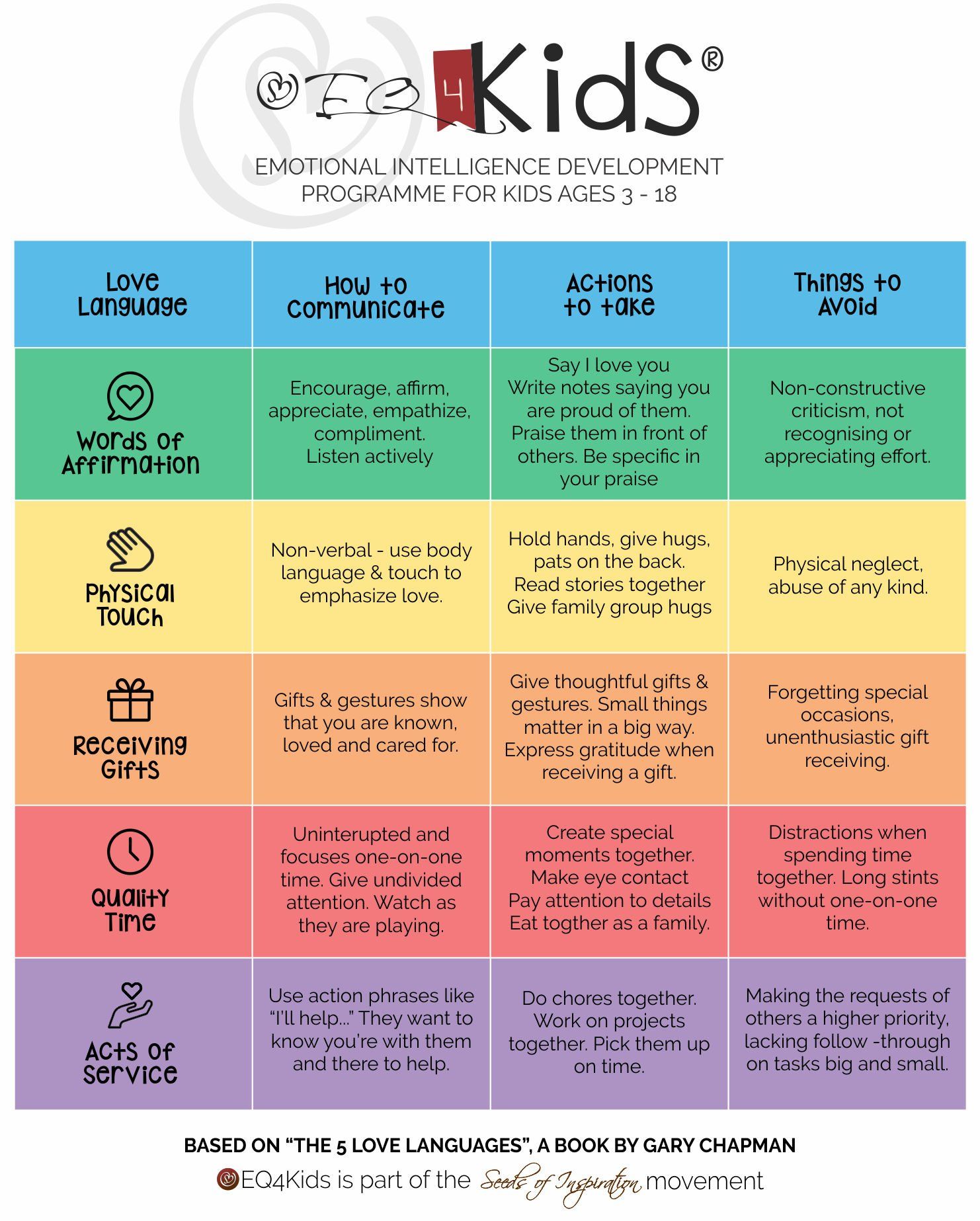What is your child’s love language?
We all know that children require love. Lots of love. But, did you know, that children, just like adults, have a preferred love language? Gary Chapman in his book “The Five Love Languages” outlines 5 ways to express love. According to Chapman each person has a primary love language. In many cases, a person’s preferred love language can be discovered by observing how a person prefers to show love. People tend to give love in the way they want others to show or give it in return, but it is important to realise that people feel loved in different ways.
The 5 love languages are words, touch, quality time, gifts and service. It is important to note that for small children spending quality time with them is one of the best ways you can show them you love them.
Which one describes your child the best?
Every family need to put love at the centre of their family. Lack of love deprives people of many things such as feeling wanted and appreciated. Create a loving environment where your child can feel loved, can love themselves and knows how to show love to other people .
Teaching your pre-schooler about love
- At this young age you still need to focus a lot on showing your child love before expecting him/her to be able to show others acts of love.
- Start giving your child reasons why you love him. Be careful not to make love seem to be a conditional thing.
- Start showing your child your love for different things, like nature.
- Make a list with your child of people you love and who loves you.
- Teach your child a sign which means I love you e.g. putting your hand on your heart. Show this to each other as you drop your child off at school or when you are sitting somewhere between other people at a social event.
- Make a “love heart”. Explain to your child how a picture of a heart is often used to symbolise love. You can share with them that the heart supplies blood to the body, the blood can be seen as love and that keeps us happy. This is an opportunity to explain what love is to your child and the importance thereof – use this time to also discuss things that might make your child not feel loved. Many parents have discovered small things through asking this question, which they never even realised they did.
- Make a card together for someone you love. Talk to your child about why they chose this person.
- Be physically and mentally present in your child’s life as much as possible.
- Encourage your child’s dreams, however small they might be at this stage, and help them explore their interests.
- Create a “Dance of Love” with your child. Create your own moves on a song that your child loves and spend time together dancing on this song and every time you hear it dance together. Hopefully your song won’t play in the middle of a shopping centre… but what the heck, do the moves and have as much fun as possible. This will also show your child that you are not afraid to show your love to them anywhere.
- Role-play different stories and situations through which your child must show love.
- Start explaining to your child what unconditional love is and means.
- Put up a big picture of your child in the house on which you stick a note every week which says something good about him/her and a reason why you love them even more – please don’t do this in a way that will make love sound conditional, try to stick something on the picture which you love about them even if they have been bad.
- Make a “help you because I love you jar” where you put in notes of things you can do with your child. Whenever your child is bored you can take out a note together and do something together which will make your child feel loved. Be prepared to make chocolate cookies for dinner or run through the sprinkler in the backyard at night.
Make sure you do not only know your children’s preferred love language but their temperament too.
Share Post
Complete the following form if you require more info about EQ4kids or want to enroll your child at your nearest Franchise.
Blog Enquiry











